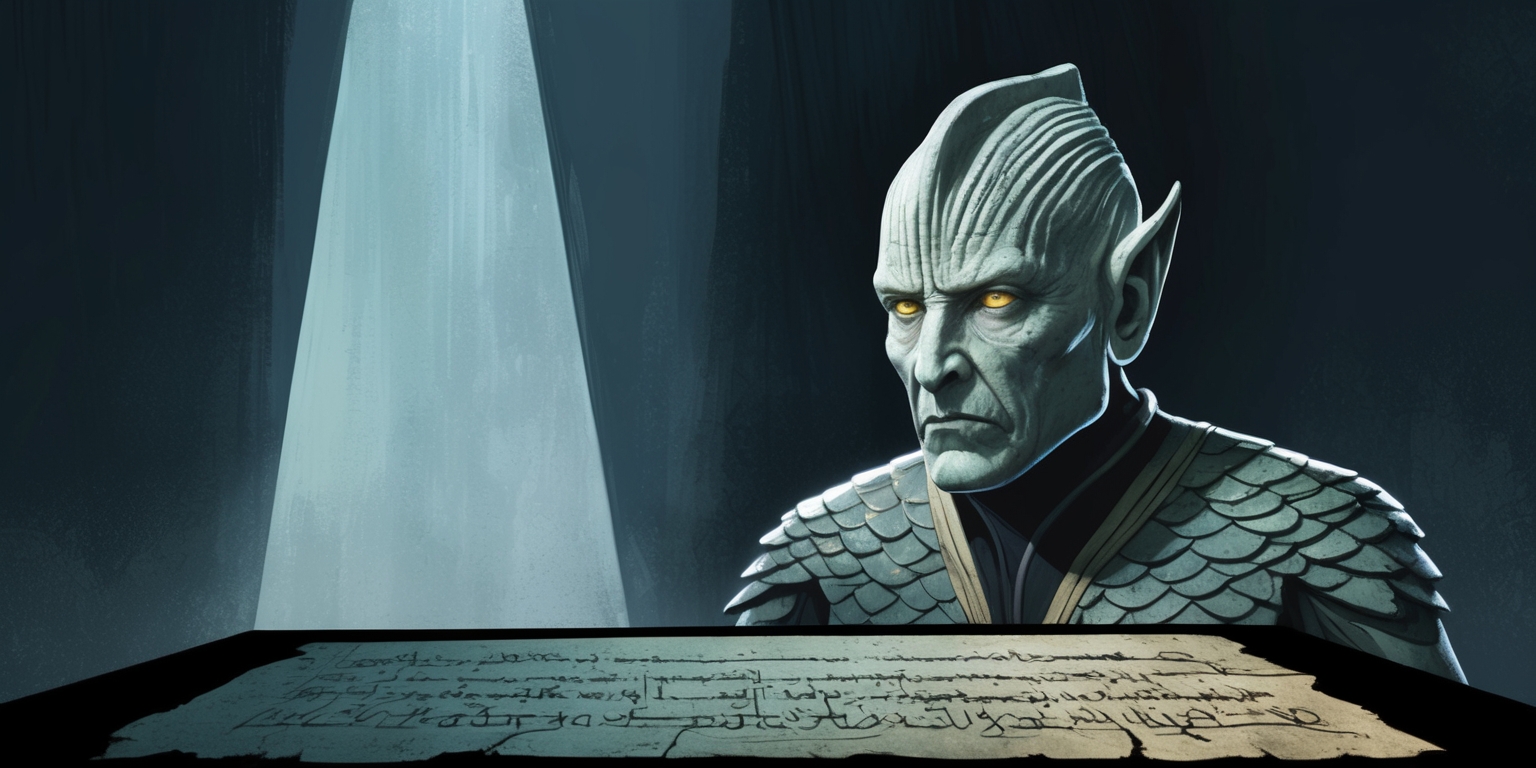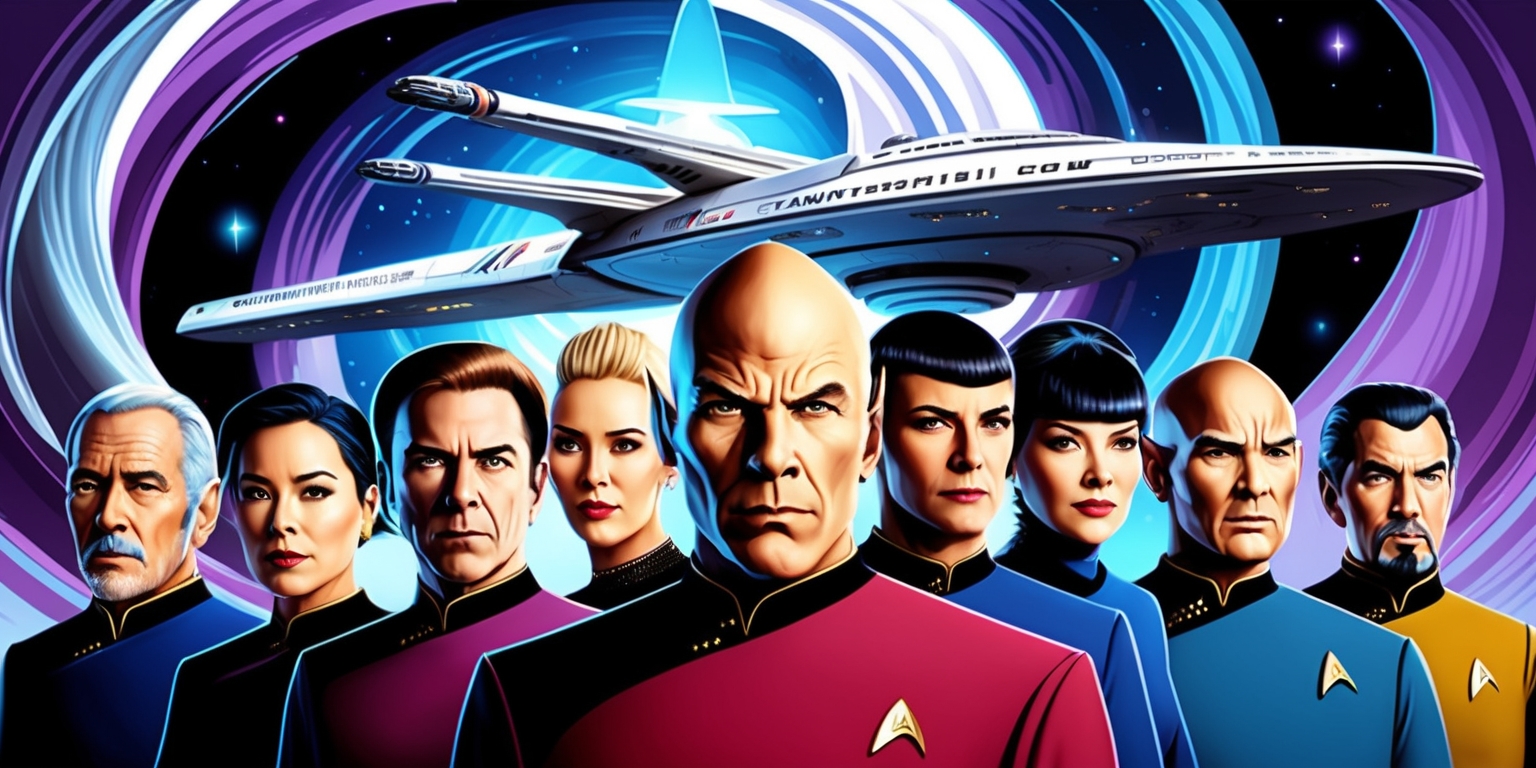The Cardassian Paradox: Exploring Complexity and Morality in Star Trek's Iconic Alien Race
Dec-05-2024

In the expansive universe of speculative fiction, a limited number franchises have achieved the iconic status of Star Trek. Created by Gene Roddenberry, it has evolved into a multifaceted universe full of complex characters and intriguing alien races. While Roddenberry is credited with the creation of many notable species, a debate has emerged around one group that stands out among the rest: the Cardassians. One fan, sharing their thoughts on a popular online platform, posited that the Cardassians not only capture the core significance of belonging to the Star Trek universe, but they also embody some of the franchise's most compelling narratives. This exploration dives into the distinctive characteristics, roles, and impact of the Cardassians, while also shedding light on the creative tensions that surrounded their portrayal.
The Birth of the Cardassians
The Cardassians were conceived by a team comprising writers Stuart Charno, Sara Charno, and Cy Chermak. Their design added a new layer of intrigue and intricacy to the already lavish fabric of alien races presented in the Star Trek universe.
Distinctive Appearance
Characterized by prominent ridges on their foreheads, necks, and cheeks, the Cardassians possess a striking humanoid appearance. This physicality sets them apart from other species, making them instantly recognizable to viewers.
The Cardassian Union
The prevailing force within the Alpha Quadrant, the Cardassian Union is known for its political ambitions and military might. Their ruling authority and governance have been met with both fear and respect within the Star Trek narrative.
Ruthlessness and Intelligence

Described as one of the most ruthless species in Star Trek, the Cardassians aren't without their redeeming qualities. Their intelligence, cultivated through a rigorous educational system from a young age, facilitates their strategic prowess, enabling them to navigate the complex political landscape of the galaxy.
Origins in Star Trek Narratives
Their debut in the franchise came through an installment of Star Trek: The Next Generation named "The Wounded." This introduction laid the groundwork for understanding their complex nature, which would be further explored in later series.
Deep Space Nine and Cardassian Development
Cardassians became central figures in Star Trek: Deep Space Nine, which delved into their culture, politics, and history. This exploration transformed them from mere antagonists into multifaceted characters with storied backgrounds.
Significant Episodes
One of the most haunting representations of the Cardassians is encapsulated in the episode "Chain of Command." Here, Captain Picard, played by Patrick Stewart, becomes a target of Cardassian officer Gul Madred, subjected to psychological and physical manipulation, showcasing the darker aspects of their nature.
Artistic Risks in Portrayal
Patrick Stewart's commitment to his role led him to film pivotal scenes in a vulnerable state, underscoring the intense emotions and real-world implications of torture that the episode intended to convey. This bold decision set the tone for how Cardassians were viewed by audiences.
Cultural Significance of the Cardassians
The Cardassians symbolize a complex blend of strength and vulnerability, serving as both adversaries and reflections of moral ambiguities prevalent in interstellar politics. Their narratives often instigate dialogue about ethics and morality, rarities in typical villain portrayals.
Gene Roddenberry's Vision and the Cardassians
While Gene Roddenberry was known for his idealistic vision of humanity's future, the emergence of Cardassians conflicted with some of his beliefs. Their brutal tactics and power-hungry nature posed challenges to the utopian society he envisioned.
Creative Tensions
This dichotomy also led to friction between Roddenberry and the showrunners. Notably, Roddenberry’s disdain for character-driven episodes was highlighted in his critique of "Family," an episode that looked deeply into Captain Picard's relationships, diverging from action-centric plots.
The Power of Character Exploration
Screenwriters, such as Ron D. Moore, believed that exploring characters' backstories and motivations would enrich the narrative. They aimed to delve into complex emotional landscapes, but Roddenberry’s reservations often limited their creative freedoms.
Impact on Future Storytelling
The tension stemming from Roddenberry’s ideals vs. narrative depth contributed to the broader evolution of storytelling in the Star Trek universe. The rich character arcs of the Cardassians and other races would later inspire more nuanced narratives across various media.
Viewer Reactions and Legacy
Fan reactions, such as those expressed in online forums, reveal the lasting impact Cardassians have had on the franchise. Their stories invoke strong emotional responses, illustrating how effective storytelling can transcend the traditional boundaries of science fiction.
Conclusion: A Lasting Impression
The Cardassians embodied a blend of ruthlessness and depth that has captivated audiences since their introduction. Their complex portrayal invites ongoing discussions regarding morality, ethics, and the human condition, attributes that keep viewers returning to the Star Trek universe. As as the franchise progresses, the insights gained from the Cardassians remind us that even within fictional worlds, themes of power, cruelty, and redemption resonate profound truths about our own society.







